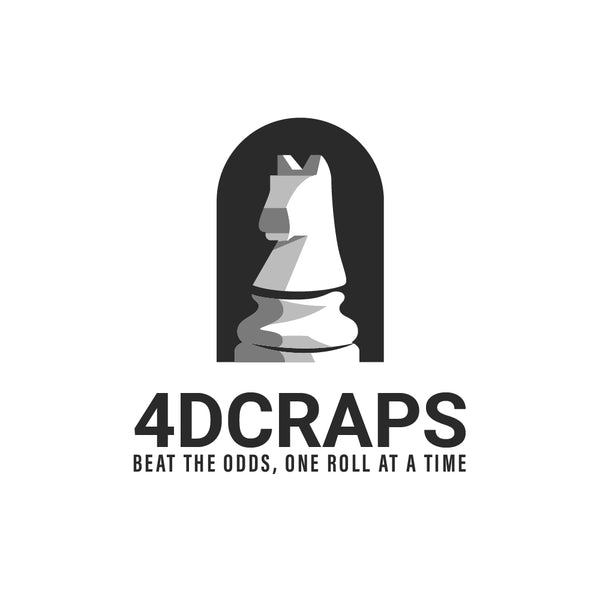Why I Prefer Playing Craps Alone: A Strategic Perspective on Controlling the Game
Share
When you walk into a casino, it's hard not to be drawn to the energy of a crowded craps table. People are cheering, high-fiving, calling out bets, and chasing what they believe is a “hot shooter.” For many, that’s the essence of the game. But for those of us who approach craps with a strategy-first mindset, crowded tables can be a trap—not a benefit.
In my experience, the smartest way to play craps is to seek out an empty or quiet table and shoot the dice yourself as much as possible. This may go against the popular belief that a hot table increases your odds, but here’s the truth: craps is a game of math, not magic. And in that math, independence, speed, and control matter far more than table energy.
The Fallacy of the “Hot Table”
Let’s start with the most persistent myth in craps: the “hot” table. You’ve probably heard it a thousand times—someone claims a shooter is “on fire,” or that the table’s been “hot for hours.” But this idea is based entirely on emotion and anecdote. Mathematically speaking, each roll of the dice is completely independent from the last. Just because a shooter has rolled well for the past five minutes doesn’t mean they’re more likely to continue doing so.
This concept is known as the Gambler’s Fallacy—the mistaken belief that past outcomes influence future probabilities. In craps, that kind of thinking can lead to chasing streaks that don’t actually exist. If you're betting based on streaks, you're not following the math—you’re following the noise.
Time Is a Hidden Currency
There’s another factor most people overlook at the craps table: time.
A crowded table might be exciting, but it’s also incredibly slow. Each new shooter, each round of bets, each casual conversation delays the game. When you’re sharing the table with ten other players, you might only get to shoot once every 20–30 minutes. That means your strategy—no matter how sharp—is barely getting a chance to play out.
But if you have the table to yourself? You’re shooting every time. You're rolling constantly, making your bets efficiently, and putting your plan into motion with every roll. The more rolls you take, the more opportunities your edge has to express itself. In short: more rolls equals more chances to win.
And on the flip side, if you're losing, you're also losing time. At a crowded table, you could waste a full hour and hundreds of dollars while barely touching the dice. At a solo table, you find out quickly whether your strategy is working—and that kind of fast feedback is essential for long-term improvement.
Control Is Everything
Another reason I play alone? Control.
At an empty or quiet table, you set the pace. You’re not waiting for others to make bets, clarify rules, or ask the dealer questions. You’re not distracted by someone making wild prop bets or pressuring you to “bet the hardways.” You’re focused. Dialed in. You control the flow, the rhythm, and the mental state of the session.
This is especially important if you're playing a structured, disciplined game. Whether you're using a conservative pass-line strategy, a regression system, or a variation of the Iron Cross, fewer distractions help you stick to your plan. You're less likely to deviate, less tempted to chase losses, and more able to think clearly.
The Casino Won’t Advertise This, But...
Here’s a reality that casinos don’t advertise: the house edge doesn’t change at a crowded table—but your efficiency does. By playing alone, you maximize the number of decisions you make per hour, which means your skill and discipline play a bigger role in the outcome.
Sure, it's not as flashy. There’s no crowd cheering after a long roll, no strangers slapping your back. But if you're in the game to win—or at least to play smart—the solo table offers the cleanest, clearest path to success.
Final Thoughts
Craps can be one of the most exciting games in the casino, but it’s also one of the most misunderstood. The myth of the hot table, the lure of the crowd, and the emotional highs of shared momentum are all part of the show—but they don’t improve your odds.
If you're serious about playing well, take a different route: find an empty table, shoot every roll yourself, and give your strategy room to breathe. In a game where every roll is independent, and every second counts, less noise and more control could be the smartest bet you make.
